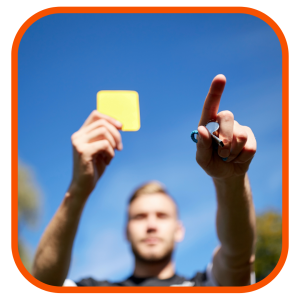Football game localisation into Polish

Not long before UEFA Euro 2024 held in June and July, we carried out a project for one of our clients. It involved translating and editing a football quiz card game. Our client’s specialisation is tabletop games, and we’ve collaborated for over five years now.
Big sporting events have always provided companies with great marketing opportunities. In various industries, special editions of products launched for the Olympics or World Cup are a must. One example is football gadgets, such as visually appealing playing cards featuring questions and trivia about players.
Challenges and objectives
The greatest challenge was the fact that many answers were no longer accurate. Football statistics and information about players’ current clubs change surprisingly quickly. While the English version – which we translated into Polish – contained a disclaimer that informed the user about the cut-off date (several years back), leaving the data unchanged wouldn’t resonate well with the target audience. This would be even more annoying as the game is a quiz – so, inaccurate information provided on the cards could be the reason for a correct answer not to count.
Therefore, our aim was to translate the card deck into Polish and update the trivia. The client agreed to that plan.
Step 1: Source text translation, including changes
The client provided us with English cards in the PDF format.
The translator assigned with the task is thoroughly familiar with all things football. His knowledge of the jargon and the current state of international football let him quickly notice inaccuracies and, by extension, streamline the localisation.
The main source of data was Wikipedia. It’s easily accessible and frequently updated (almost in real time). As such, the portal is an invaluable source of information about sports competitions. What’s more, it can be trusted when it comes to the correct spelling of players’ or clubs’ names (for example if diacritics are concerned).
Step 2: Linguistic revision and proofreading
The second stage of work was editing. This job was assigned to an experienced editor, who’s worked for our agency for a long time. She thoroughly verified translation accuracy as compared to the source text (whenever there were any doubts or questions, the translator was ready to answer them). She also proofread the text as far as the linguistic layer was concerned – looking for minor faults such as typos but also introducing preferential changes which improved the writing style.
At this stage, as part of consultations with the translator, our project manager received general remarks concerning potential reception of the game by Polish audiences. It was noticed that the quiz features way too many questions about British footballers (as it was likely intended for the British market), and that those concerning Polish players are often extremely easy – in all likelihood, even the youngest Polish fans would tackle them effortlessly. Our suggestion for the client was to change such questions, and it was approved.
Conclusions
This project combined two processes that we conduct on a daily basis – translation with editing, as well as factual verification. Entrusting the task to a football fan – the translator – and an editor who’s well-versed in all the intricacies of Polish let us smoothly carry out the project. Soon after, the same client ordered another sports game translation – so we had the chance to apply the experience in a new task.
